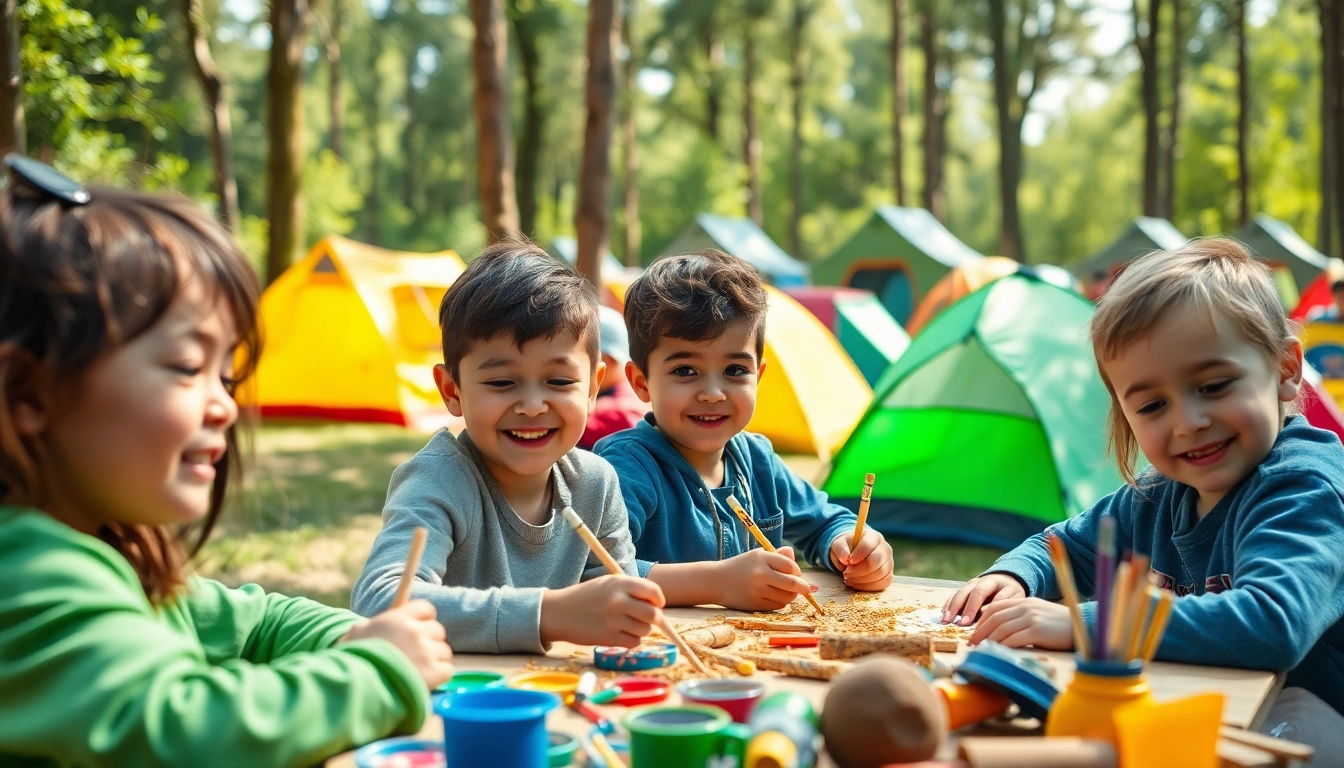Understanding Holiday Camps
Holiday camps represent a unique blend of recreation and education, providing children and young adults with opportunities to explore new interests, develop skills, and build friendships in a structured environment. These camps have evolved significantly over the years to cater to various demographics and interests, making them a popular choice for parents seeking engaging activities for their children during school breaks. Whether it’s a fun-filled summer camp or specialized programs during the holiday seasons, holiday camps present a myriad of choices that support a child’s growth and development.
What are Holiday Camps?
Holiday camps are organized group activities designed for children and adolescents, typically held during school holidays. These programs can vary greatly in focus, duration, and location but generally include a range of recreational and educational activities. Camps can be residential, where participants stay overnight, or day camps, where they return home each evening. Holiday camps may emphasize sports, arts, science, or a combination of different themes, all while nurturing interpersonal skills and encouraging a sense of community among campers.
History and Evolution of Holiday Camps
The concept of holiday camps gained popularity in the early 20th century, particularly in the United Kingdom. Initially, these camps were aimed at providing a vacation experience focused on leisure and relaxation for families. The well-known Butlins holiday camps, established in the 1930s, marked a significant milestone in this evolution by offering comprehensive recreational facilities and programs tailored for families. Over time, holiday camps adapted to changing societal needs, introducing specialized programs that cater to various interests, such as sports, arts, science, and technology.
Types of Holiday Camps Available
Today’s holiday camps are diverse, catering to different age groups, interests, and objectives. Common types of holiday camps include:
- Adventure Camps: Focused on outdoor activities such as hiking, climbing, and team sports.
- Creative Arts Camps: Emphasizing arts, crafts, drama, and music to foster creativity.
- Sports Camps: Dedicated to enhancing skills in specific sports, from soccer to swimming.
- STEM Camps: Concentrating on science, technology, engineering, and mathematics through hands-on activities.
- Nature Camps: Immersing children in the natural world with environmental education and outdoor exploration.
Key Activities Offered at Holiday Camps
Arts, Crafts, and Creative Workshops
One of the highlights of holiday camps is the wide range of arts and crafts activities available. Workshops often include painting, pottery, collage-making, and other creative projects that allow campers to express themselves. These activities not only engage children’s artistic inclinations but also foster fine motor skills and cognitive development. Many camps feature guest artists or skilled instructors who introduce new techniques and materials, enhancing the overall experience.
Outdoor Adventures and Team Sports
Outdoor activities are a staple of holiday camps, encouraging physical fitness and teamwork. Campers participate in organized sports, hiking excursions, obstacle courses, and even survival skills training. These physical engagements not only improve health and stamina but also stimulate teamwork as participants learn to work together to achieve common goals. Camps often facilitate sports leagues and friendly competitions, instilling a sense of achievement and community.
STEM Activities for Young Explorers
With the growing emphasis on STEM education, many holiday camps incorporate science and technology activities into their programs. Campers may engage in exciting experiments, coding workshops, and robotics challenges, empowering them to explore their interests in these fields. Such activities foster critical thinking, problem-solving abilities, and a passion for discovery, setting the foundation for future academic pursuits.
Benefits of Attending Holiday Camps
Social Skills and Teamwork Development
Holiday camps create a vibrant social environment where children can make new friends and develop essential social skills. Through group activities and collaborative projects, campers learn the importance of teamwork, communication, and leadership. These interactions are invaluable for building self-confidence and enhancing interpersonal skills, crucial components for success in future endeavors.
Physical Fitness and Outdoor Engagement
In an age dominated by screens and sedentary lifestyles, holiday camps promote physical activity and a connection to the outdoors. Participation in sports and nature-based activities helps children develop healthy habits and appreciate nature, instilling a lifelong passion for outdoor recreation. The physical challenges presented at camps can lead to significant improvements in overall health and well-being.
Boosting Confidence and Personal Growth
Through new experiences and accomplishments, holiday camps provide a supportive environment for personal growth. Campers are often encouraged to step outside their comfort zones, whether through trying a new sport or performing in front of peers. This exposure builds resilience and self-esteem, equipping children with the confidence to tackle challenges both in and out of the camp setting.
Finding the Right Holiday Camp for Your Child
Evaluating Camp Programs and Activities
When searching for the ideal holiday camp, it’s essential to assess the programs and activities offered. Look for camps that provide a well-rounded experience catering to your child’s interests. Consider whether the camp emphasizes educational opportunities alongside recreational activities, or if their focus is primarily on one aspect. Visiting camp websites and reading reviews can provide insights into the types of experiences offered.
What to Look for in Camp Facilities
Facilities play a critical role in ensuring a safe and enjoyable camp experience. Evaluate factors such as cleanliness, safety measures, available resources (like sports equipment and art supplies), and the overall environment. Camps should also have adequate space for activities, be it indoor or outdoor, to enrich the camper’s experience. In-person tours of the facilities can be highly beneficial in assessing whether a camp meets your expectations.
Understanding Safety and Staff Qualifications
The safety of campers is paramount. Ensure that the camp adheres to necessary health and safety regulations and that the staff is qualified and trained to handle emergencies. Inquire about staff-to-camper ratios, first aid certifications, and background checks. Camps often provide details about their staff’s training and qualifications, giving you peace of mind regarding your child’s care.
Tips for a Successful Holiday Camp Experience
Preparing Your Child for Camp
Preparation is key to a successful camp experience. Engage in open discussions with your child about what to expect at camp, addressing any fears or concerns they might have. Encourage them to articulate their expectations and feelings. Preparing them mentally can significantly reduce anxiety and enhance their excitement for the upcoming adventure.
What to Pack for Holiday Camps
Packing plays a crucial role in ensuring your child is comfortable and prepared. A checklist of essentials can make this process easier. Important items typically include clothing suitable for various activities, swim gear, sunscreen, a reusable water bottle, and personal hygiene products. If the camp requires specific items, such as sports equipment or art supplies, be sure to include those as well.
Staying Connected with Campers
While it can be tempting to maintain constant communication with your child during camp, excessive contact can negate the benefits of the experience. Establish clear boundaries regarding communication and consider designated times to check in. Encouraging your child to engage fully in camp activities without distraction can help them forge stronger connections with peers and enjoy their time away from home.



